Paul Kincaid's From the Other Side, October-November 2016: Michelle Paver's Thin Air to Dave Hutchinson's Europe in Winter, and plenty more in between "to keep us awake as the nights draw in"
← Paul Kincaid’s From the Other Side, September 2016: Christopher Priest's The Gradual, Alastair Reynolds' Revenger, Jonathan L. Howard, P.S. Publishing, and moreJanuary newsletter: illogiCon welcomes Daniel Jose Older, Jeremy Whitley signs "Wasp", the 2016-17 Manly Wade Wellman Award season gets underway, and more →
Paul Kincaid's From the Other Side, October-November 2016: Michelle Paver's Thin Air to Dave Hutchinson's Europe in Winter, and plenty more in between "to keep us awake as the nights draw in"
Posted on 2017-01-03 at 14:56 by montsamu
[Editor’s Note: From the Other Side is Paul Kincaid’s monthly column on books and news from the other side of the Atlantic. For these installments, my apologies to all for the extreme lateness of publication. The fault is entirely mine.]
From the Other Side, October 2016 By Paul Kincaid
It’s Halloween, so where are all the ghost stories? Well, one of the most intriguing collections of haunting new tales, with contributions by Nina Allen, Tade Thompson and K.J. Parker among others, doesn’t come out until December. I suppose a ghost story for Christmas is as much of a tradition as a ghost story for Halloween; but still, one does sometimes wonder at the ways of publishers. Still, there are plenty of other ghostly tales to keep us awake as the nights draw in. For a start, there’s Susan Hill, who has become one of the most reliable authors of disturbing tales ever since she wrote The Woman in Black, which seems to have had more of an afterlife than any other ghost story since Charles Dickens. This year she presented us with The Travelling Bag (Profile), which brings together four creepy tales: a psychic detective’s most memorable case; a mother trying to protect her child, even from beyond the grave; a childhood friend met again in unlikely circumstances; and the disruption caused by the arrival of a new office worker.

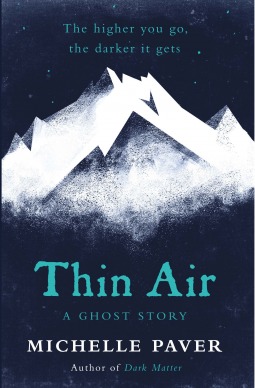
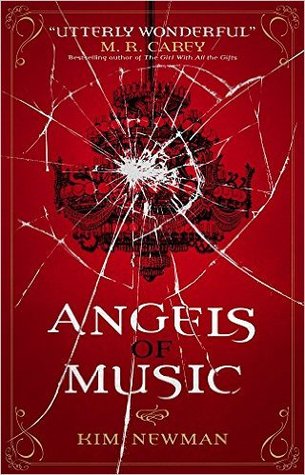
There is more haunting business in Thin Air by Michelle Paver (Orion), in which a 1930s expedition to climb Kanchenjunga find it’s not just the elements they have to battle, but something rather more disturbing. Meanwhile there’s a rather more cavalier take on horrors of the past in Angels of Music by Kim Newman (Titan), in which the Phantom of the Opera has become the mastermind behind a team of female agents (they include Irene Adler, for instance) who investigate crimes and horrors that the French government would prefer to keep secret. It’s a rather gleeful rip-off of Charlie’s Angels with a selection of fictional characters all set in a Paris that never existed.
But if it’s the more traditional ghost story you’re after, you won’t go far wrong with E.F. Benson, possibly the finest writer of the English ghost story after M.R. James. Vintage have brought out a new collection of his Ghost Stories, selected and introduced by Mark Gatiss, so if you’ve not encountered these deliciously spooky stories before, prepare to discover just how unsettling the most everyday things in life – a London bus, a Tube station, a telephone – can be in the hands of a master.
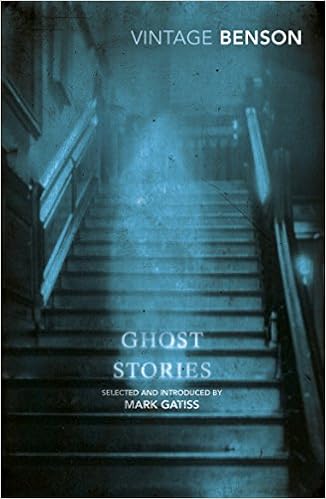

Moving more into science fiction, but there’s still something supernatural about Naomi Alderman’s new novel, The Power (Viking). It’s set more or less in the present, but suddenly a genetic mutation means that every young woman has the power to send an electric charge into other people, enough to cause agony or even death. And just as suddenly, the world’s power balance changes. The story follows four people, the daughter of a gangster, an abuse survivor turned religious leader, a middle-aged female politician and a male Nigerian photo-journalist, as they negotiate this extraordinary and terrifying new world.
Chris Beckett won the Arthur C. Clarke Award for Dark Eden, now he completes the sequence with the third and final novel, Daughter of Eden (Corvus). When the uneasy peace between the divided peoples of Eden is finally broken, Angie Redlantern must flee across the Snowy Dark to the place where it all started, where the colonists from Earth first arrived. And here she witnesses something that will change Eden forever.
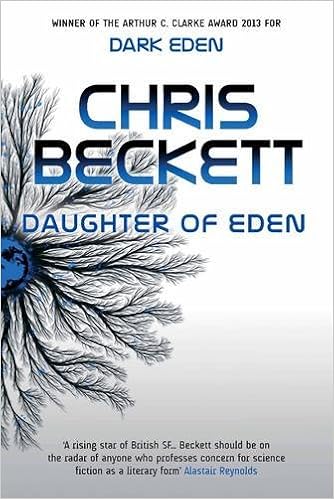
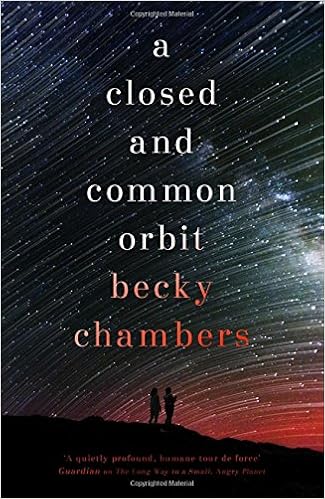
Another popular series continues with A Closed and Common Orbit by Becky Chambers (Hodder & Stoughton), the sequel to The Long Way to a Small Angry Planet. To be honest, I found that first volume rather too desperate to be liked, with the characters all cosily paired off and happy-ever-afters all over the place. The only plot line that came close to a jagged edge involved the love story between the engineer Pepper and the AI Lovelace, and that’s the story this new novel follows. But everything suggests that obstacles will be easily overcome and sweetness will rule; but that has never been an obstacle to literary success, so I suspect this will prove as popular as its predecessor.
The Star of the Sea by Una McCormack (Abaddon), the latest volume in the Weird Space series begun by Eric Brown, will, I suspect, be less smoothly written and less successful, but I think it will have rather more feisty energy about it. Stella Maris is a small world on the edge of civilisation where a small population of humans and aliens have sought peace; but when Delia Walker flees to Stella Maris, passes through the portal, and a few weeks later her full-grown daughter steps out of the portal, things aren’t going to be as peaceful again.
![Star of the Sea (Weird Space Book 4) by [McCormack, Una]](https://images-na.ssl-images-amazon.com/images/I/51Vdh-qndEL.jpg)
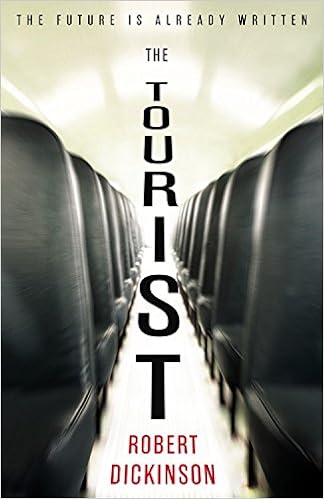

A still more interesting work is The Tourist by Robert Dickinson. In a dystopian future, sightseeing tours to the 21st century past have become the most popular destination for holidaymakers. But on one tour, one of the visitors goes missing, but according to the records she did not go missing, so now it looks like she could change the history of the world. A tour guide is sent to find her, and as a result finds himself caught up in a bewildering conspiracy plot that casts a baroque satirical light upon our own world.
Finally, an interesting debuts that seems to have been getting a fair bit of attention was Everything Belongs to the Future by Laurie Penny (Tor), which also ends up making telling satirical points about our world today. A new treatment can give you a vastly extended lifespan, so long as you can pay for it. So the rich and famous are cut off even more from the rest of society, while ordinary people find themselves at ever greater disadvantage. But a group of anarchists in Oxford, and the inventor of the longevity treatment, are plotting to subvert the use of the drug. The result is a powerful satire about the 1%.
From the Other Side, November 2016 By Paul Kincaid
Okay, November, what went wrong? Did you get out of bed on the wrong side? Did you just fumble? Do you want to start over again and give it another go? No, I thought not. Everyone else gets the headache, and you just shuffle off into December and hope nobody notices. Well we did notice, and frankly I’m just sick and tired of all these domestic problems you’ve landed us with here at Kincaid Towers. And while we’re at it, that election thing in America wasn’t too bright, was it?
Ah well, enough with the gas leaks and the other disasters we’ve been landed with recently. At least in terms of new books it’s been a pretty bright month.
One of the brightest spots was the appearance of Europe in Winter by Dave Hutchinson (Solaris), the third volume in his Fractured Europe sequence. This time last year I was saying how incomprehensible it was that the first book, Europe in Autumn, hadn’t actually won any of the awards it was shortlisted for, and maybe the second book, Europe at Midnight, would do the trick. Well, it’s still a travesty of justice that Hutchinson’s mantelpiece is without any silverware, so maybe the third time is the charm. And chef-turned-coureur Rudi is back centre stage in this volume, in which terrorist outrages, hostage exchanges, and the usual deadly secrets mark the developing relationship between Europe and the Community. Hutchinson’s pitch-perfect deployment of Le Carre-style tradecraft in a convincing near-future Europe at odds with itself makes this one of the most entertaining series of novels I’ve read recently; it really does deserve one of those awards one of these days.

![Barcelona Tales by [de Bodard, Aliette, Tuttle, Lisa, Barceló, Elia, Hutchinson, Dave, Martínez, Rodolfo, Watson, Ian, Rhei, Sophia, Singleton, Sarah, Pérez de La Puente, Virginia]](https://images-na.ssl-images-amazon.com/images/I/51A6dkpxjpL.jpg)
And if you’re looking for more by Dave Hutchinson, he also puts in an appearance in Barcelona Tales edited by Ian Whates (NewCon Press), which was published to coincide with the European Science Fiction Convention in Barcelona. Alongside Hutchinson it features new stories by Aliette de Bodard, Lisa Tuttle, Ian Watson and others plus some of Spain’s top science fiction writers.
The other big novel of the month for me was Rosewater by Tade Thompson (Apex). Thompson’s first novel, Making Wolf, won a Kitschies Award, which means there’s a certain amount of expectation riding on this second book, so it’s good to know that the book is already gathering a lot of very positive attention. The city of Rosewater has grown up around a biodome within which there dwells an alien. For the citizens of Rosewater, the alien is mysterious and attractive, their greatest desire is to be invited within the biodome. Well, it is for most of them, but not for the novel’s hero who has good reason to distrust what’s going on inside the dome, particularly when people like himself start being killed.
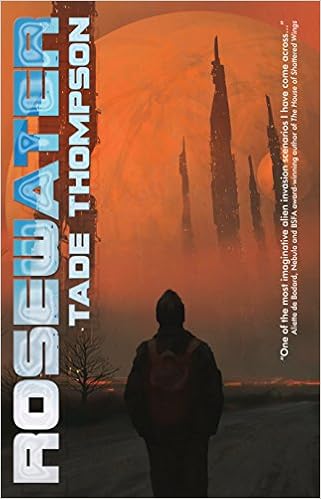
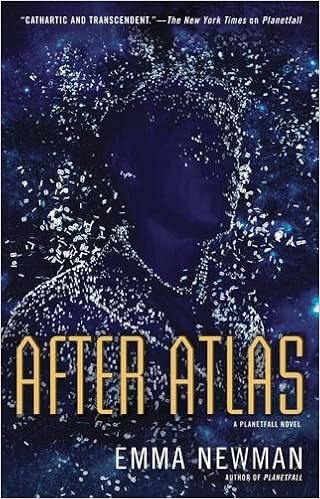
We’ve also seen a bunch of interesting sequels this month (actually, apart from Rosewater, November seems to have been all sequels). Emma Newman has followed up Planetfall with After Atlas (Roc), a stand alone crime novel. It’s the 40th anniversary of when the ship Atlas left earth for the stars, and among those left behind on Earth one of the most powerful men on the planet has just been murdered, and the more the investigator probes, the more he realises that the crime is intimately connected to the legacy of that ship. Another sequel, and a very appropriate book for this time of year, is The Lost Child of Lychford by Paul Cornell (Tor), which is set on the first Christmas after the events of The Witches of Lychford. As the vicar is preparing for the festive season, she is visited by the apparition of a small boy, and suddenly the trio of witches find themselves facing a powerful new enemy.
Actually coming out so late in October that I missed it for my last column is Simon Morden’s continuation of the story begun in Down Station: The White City (Gollancz). The magical world of Down is a place of monsters and betrayals, but Mary and Dalip have the greatest treasure of all, a map to White City, the one place in all of Down without magic. It could be the way home, but at what cost?
However, the most anticipated sequel of the month is probably Fair Rebel by Steph Swainston (Gollancz). After all, in 2011 Swainston said that she was giving up writing. Well, now she’s back, with the fifth book in her Castle sequence set in the world of Fourlands. It is 15 years since the last Insect attack and the immortals of the Circle have a new weapon, until it goes missing. When Jant begins to investigate, he uncovers a conspiracy that could have a devastating effect on Fourlands.
![Fair Rebel by [Swainston, Steph]](https://images-na.ssl-images-amazon.com/images/I/51eQCQunXWL.jpg)
![Bethany by [Roberts, Adam]](https://images-na.ssl-images-amazon.com/images/I/610YFdY7JTL.jpg)
One of the things I’ve missed when writing this column so far this year has been Adam Roberts. I mean, a couple of years ago there was something new from Roberts about every five minutes, and even last year’s relative quiet brought three books. But this year … Okay, a couple of months back we had the revised edition of The History of Science Fiction (Palgrave), which has been comprehensively revised and brought up to date. Now, allowing for the fact that no two historians of science fiction will agree on anything, this is still one of the best books on the subject you’re likely to find, but even so, a second edition does feel a little like cheating. But now, at last, there’s a new novel, or perhaps we should say novella since it’s only about 140 pages long. Bethany (Ancaster Books) concerns a time traveller who goes back to the time of Christ (I know, we’ve all read Michael Moorcock’s Behold the Man or Garry Kilworth’s “Let’s Go to Golgotha”), but Roberts’s twist is that his time traveller intends to assassinate Christ between the resurrection and the ascent into heaven. After last year’s The Thing Itself, Roberts really does seem to be fixating on questions of religious belief. Whatever next?
—
British sf critic Paul Kincaid is the author of the Hugo Award-nominated What It Is We Do When We Read Science Fiction and the BSFA Awards 2014-nominated Call And Response. He has won both the Thomas D. Clareson Award and the BSFA Non-Fiction Award.

